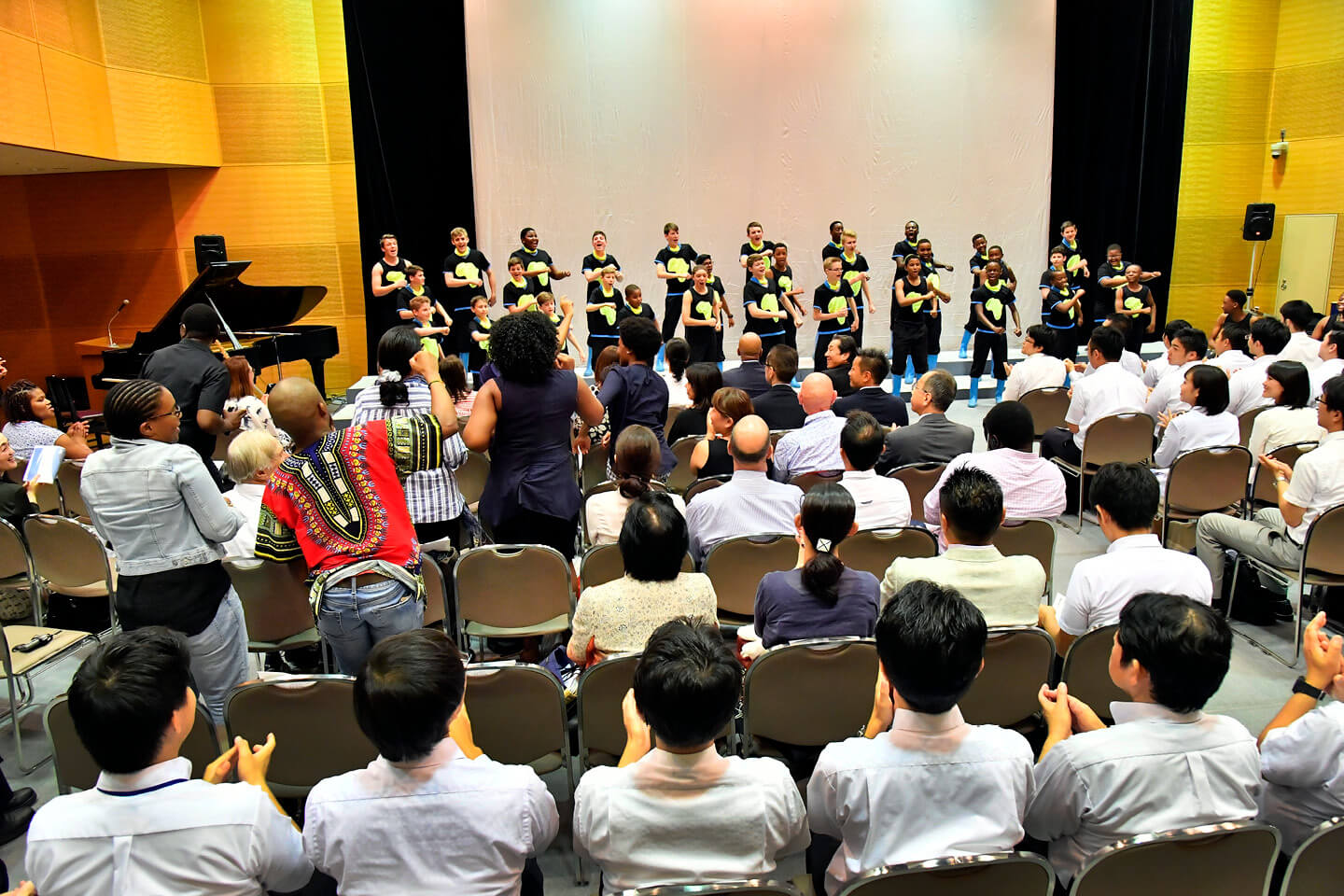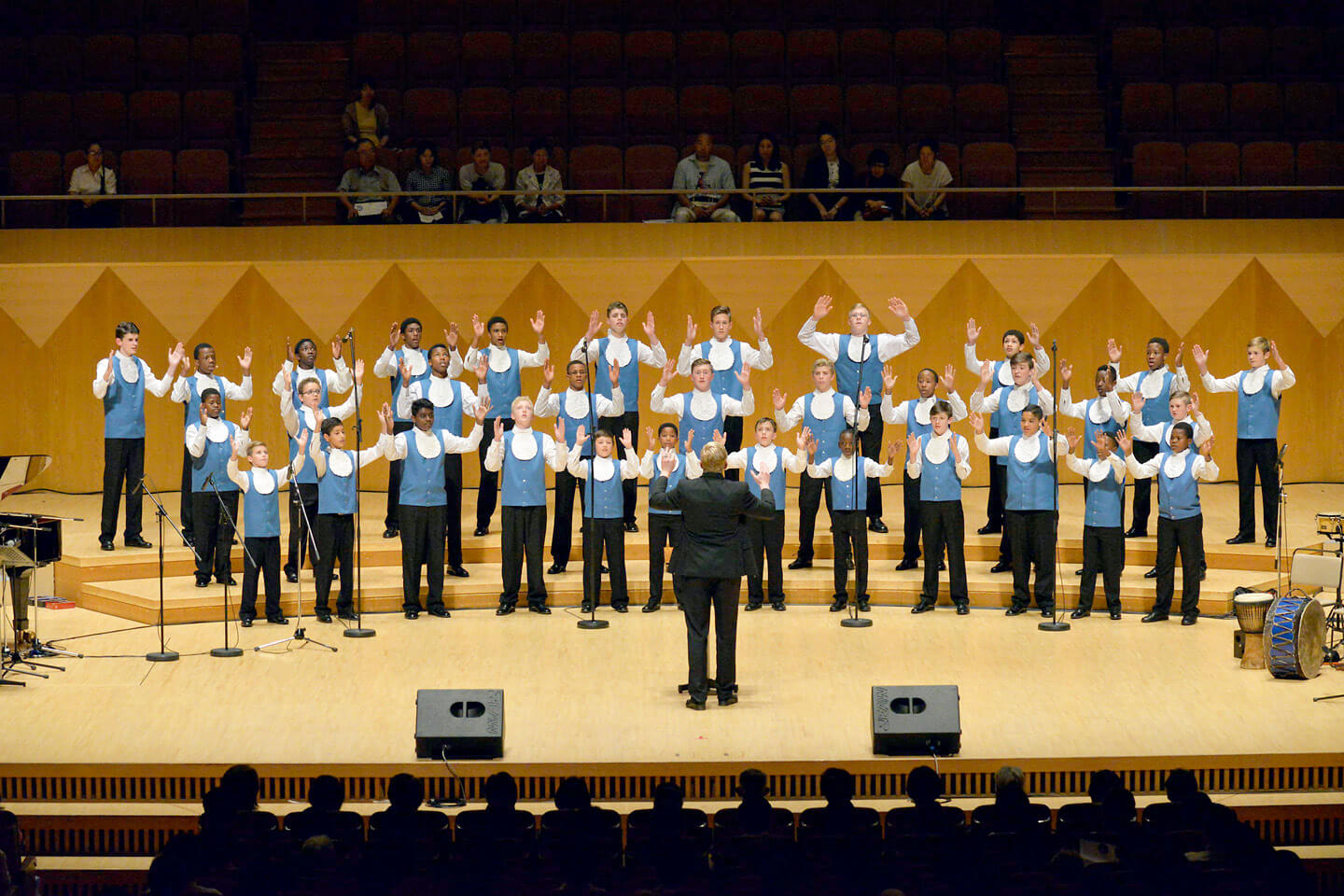
Interview with H.E. Mr. Thulani Dlomo, Ambassador of the Republic of South Africa to Japan
Min-On: The year of 2018 marked the centenary of the birth of Nelson Rolihlahla Mandela, providing a unique opportunity for people around the world to reflect on his life and legacy.
Ambassador Thulani Dlomo: We pay tribute to one of Africa’s “greatest sons,” and remember him as a freedom fighter who strived to realize a nation of justice, equality and no racial discrimination.
To celebrate his life, we need to stay true to his ideas. We will continue to address difficult issues by engaging in dialogue. Nelson Mandela’s legacy lives in our commitment to ensure a just and fair society for all, to become an instrument of change, and to support the less-fortunate within our communities.
Min-On: Dr. Ikeda, the founder of the Min-On Concert Association, declared that the 21st century is the century of Africa. Young people in Japan are also showing growing interest in African culture.
Ambassador: South Africa is truly a “rainbow nation” of races, religions and culture. To name a few of our very unique cultural elements, we have 11 official languages, cuisine from all over the world, and colorful patterns designed by the Ndebele people.
Our diversity has taught us to respect the person next to us. Wherever they come from, we extend our appreciation and warm welcome to them, and share unforgettable experiences together. That is part of our culture as indicated with the word “Ubuntu,” which means “I am because of you, and you are because of me.” We must continuously embrace the spirit of “Ubuntu.”
Min-On: Do you believe music also has the power to connect people?
Ambassador: Music is a universal language that can be understood by all humans, regardless of where they come from. In fact, the meaning of the word “Min-On” translates to “music of the people.”
When Nelson Mandela visited the founder of Min-On in October, 1990, six months later after his release from prison, a group of young Japanese people sang the song of “Rolihlahla Mandela” to welcome him. When Nelson Mandela visited Japan five years later as the President of the Republic of South Africa, he said to the founder of Min-On, “I remember the shining eyes and smiles of the youths who welcomed me with the song.” For me, this illustrates the power of music.

Min-On: Indeed—we have promoted cultural exchanges to realize this power of music.
Ambassador: I would like to take this opportunity to thank the Min-On Concert Association for their support to bring South African music to Japan. Not only by organizing a variety of performances, but through their cultural activities, Min-on have encouraged musical and cultural education for the youth. This, the growth of the youth, is something that Mandela had very close to his heart.
We would very much like Min-On to play a leading role in the development of music programs for the youths in less-privileged rural areas. We want to see more young people from South Africa, in particular from rural areas, to come to Japan to present their culture, and also to think and learn about Japanese culture. That is the future we expect from the good work of Min-On.







